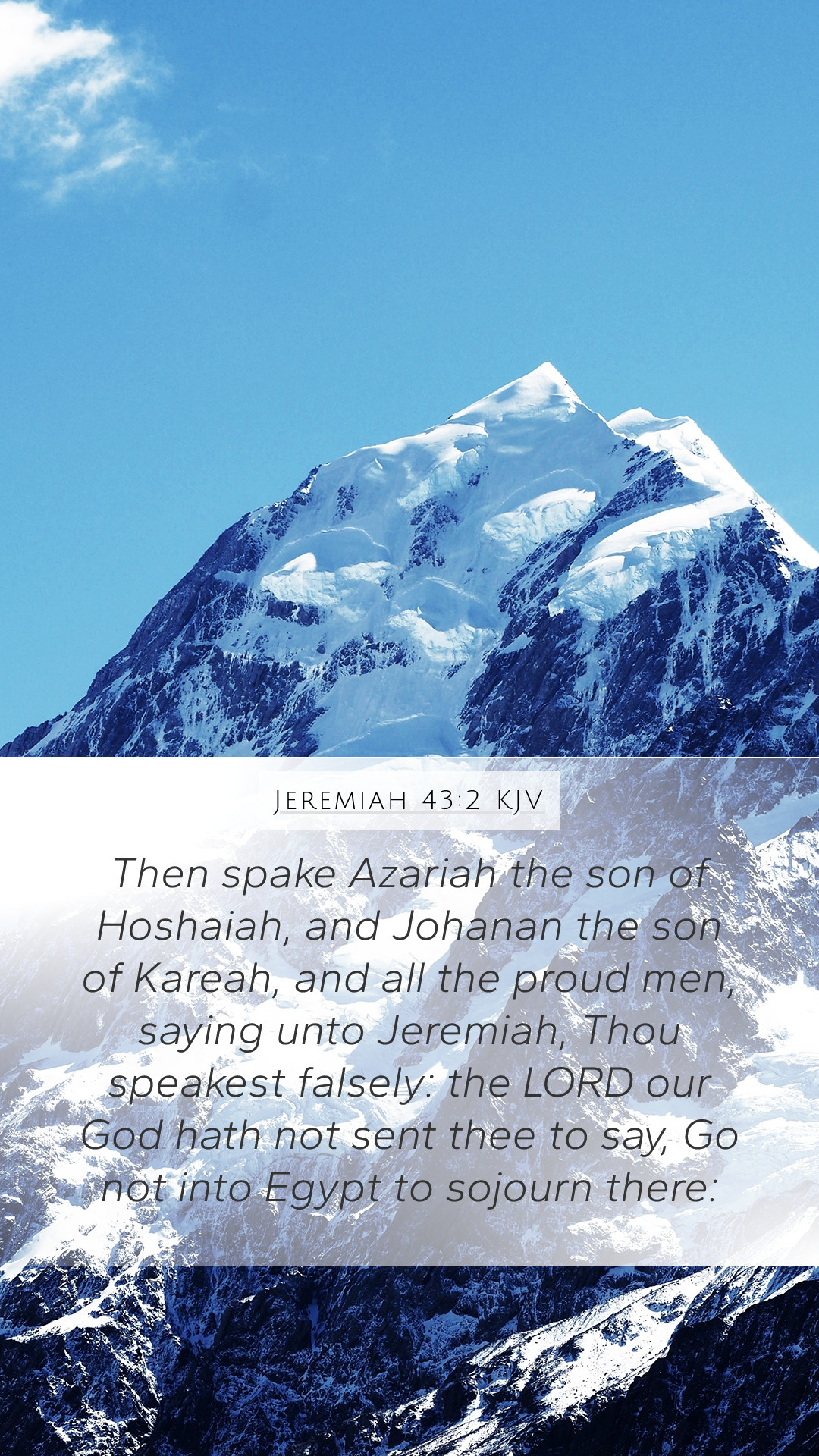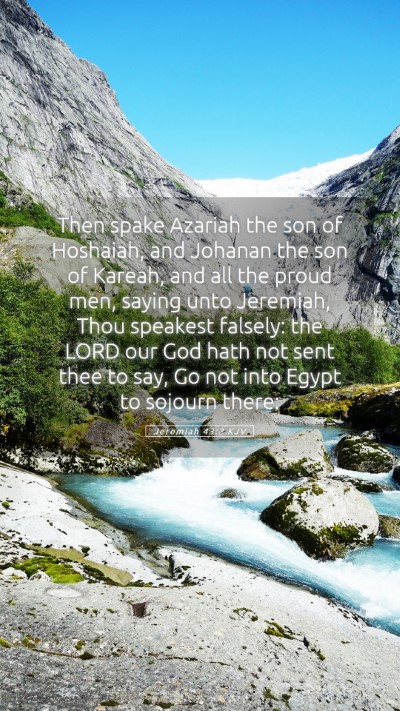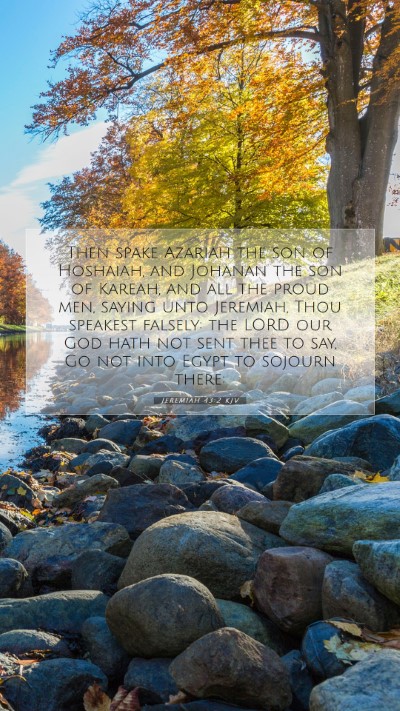Bible Verse Commentary on Jeremiah 43:2
Jeremiah 43:2 states:
"Then spake Azariah the son of Hoshaiah, and Johanan the son of Kareah, and all the proud men, saying unto Jeremiah, Thou speakest falsely: the Lord our God hath not sent thee to say, Go not into Egypt to sojourn there:"
Overview
This verse captures a significant moment in the narrative of the aftermath of Jerusalem's fall. The dissenting voices against the prophet Jeremiah reflect the tension between divine guidance and human decision-making. The response to Jeremiah’s warning illustrates the struggle between faith in God's word and reliance on personal judgment.
Insights from Public Domain Commentaries
Matthew Henry's Commentary
Matthew Henry emphasizes the pride and stubbornness of those who oppose God's messenger. He notes that Azariah and Johanan, representatives of the remnant in Judah, not only reject Jeremiah's prophecy but also affirm their confidence in their own plans. Henry suggests that this opposition stems from a lack of trust in God's provision and guidance.
Albert Barnes' Notes on the Bible
Albert Barnes discusses the implications of the rebellion against Jeremiah's prophecy. He points out that the leaders were not just opposing Jeremiah as a person but were actively resisting God's warning to avoid certain destruction in Egypt. Barnes highlights that this rejection emphasizes a broader theme of disobedience prevalent among the people of Judah, reflecting a persistent pattern of ignoring divine counsel.
Adam Clarke's Commentary
Adam Clarke provides a detailed analysis of the social and political context surrounding Jeremiah 43:2. He notes that the people were influenced by popular opinion and the desire to seek safety in Egypt after the destruction of Jerusalem. Clarke underscores the irony that in seeking refuge, they were turning away from the very God who had provided for them in their time of need.
Understanding Scripture
This verse serves as a critical reminder of the conflict between faith and human reasoning. When faced with perilous situations, the temptation to disregard God's command becomes heightened, often leading to unwise decisions. Jeremiah's experience demonstrates the challenge of standing firm in faith when confronted by strong opposition.
Key Themes and Context
- Resistance to Prophetic Words: The verse highlights a common theme in Scripture where prophets faced rejection and hostility from those they were called to guide.
- The Danger of Pride: The proud men in this verse symbolize those who choose self-reliance over humble obedience to God's word, a theme echoed throughout biblical history.
- Seeking Safety vs. Following God's Will: A pivotal conflict arises when the quest for security tempts people to abandon divine instructions, leading to dire consequences.
Practical Applications
As we seek to apply the meanings of this Bible verse, we find ourselves confronted with the question of how we respond to God's guidance in our lives. Here are some reflections:
- Are there situations where you might be tempted to rely solely on your understanding rather than seeking God’s guidance?
- How can you build a deeper trust in God’s plans even when the circumstances seem dire or contrary to His word?
- What lessons can be applied from this verse to confront pride and promote humility in decision-making?
Related Bible Cross References
- Jeremiah 42:1-6 - The people's inquiry to God through Jeremiah.
- Isaiah 30:1-3 - God's warning against seeking help from Egypt.
- Proverbs 3:5-6 - Trusting in the Lord and not leaning on understanding.
Conclusion
Jeremiah 43:2 provides profound insights into the nature of faith, obedience, and the temptations of pride. Through the lens of various public domain commentaries, we gain a richer understanding of how this verse applies to contemporary life and the search for God’s guidance through Scripture.


